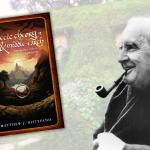Chicago Sun-Times April 8, 2005 Friday
Copyright 2005 Chicago Sun-Times, Inc. Section: NEWS; Pg. 44; RELIGION Length: 1027 words
Byline: Cathleen Falsani
Dateline: ROME
ROME — Once you get past the shock of the sheer mass of humanity that has descended on this ancient city — imagine 2 million people waiting patiently in lines that encircle Wrigley Field, snake through the streets of Wrigleyville and then stretch south on Clark Street for about a mile and you start to get the picture — the next thing that strikes you are the kids.
And speaking as a 34-year-old who is definitely feeling her age this week (how did I ever live through college with all those all-nighters?), by “kids” I mean anyone younger than me.
They’re everywhere, in every nook and cranny, alcove and Internet cafe, gelateria and church pew of this place. And, of course, they’re in the behemoth lines that have paralyzed Vatican City where for hours on end they sing and pray and sleep and flirt and chant and fidget and wait and wait and wait . . .
Stop and think about what they’re waiting for: A dead pope.
These teenagers, university students, young married couples (some with babies in strollers or front-snuggling baby-packs), and singletons have come from all over Italy, Europe and the world to stand in line for hours in the sun and wind and cold of night to spend a few seconds in front of the corpse of a dead religious leader.
A decade from now, they’ll ask each other if they were at the funeral, like some of their parents asked each other if they were at Woodstock.
This is, in a way, like a pious Woodstock. Different in spirit, but perhaps equally defining of a certain generation, and equally shocking to the rest of the world.
Europe is supposed to be secular, right? Sure something like 80 percent of Italians say they are Roman Catholic, but only about 20 percent of them ever make it to mass.
Aren’t we forever hearing about kids today, with their missing moral center and vague spirituality?
So what, exactly, is going on here in Rome this week? It’s not mass hysteria. Trust me. You can say a lot of things about the crowds that have descended on this city for the pope’s funeral: determined, stubborn, passionate, devoted. But not hysterical.
It’s the calmest crowd I’ve ever seen.
Earlier this week Cardinal Francis George, Chicago’s Roman Catholic archbishop, said something to me that I’ve recalled every time I see another group of happy Polish boy scouts, or a gaggle of Irish college girls run to join the 24-hour-long line to enter the basilica where the pope lies in state.
“Holiness is always contemporary,” George said. “Some people wonder why is it that an old man, feeble, barely about to walk, barely able to talk in the last weeks is so attractive to young people. Because of his integrity, certainly, and young people respect that. But also because of his holiness.
“It’s sin that makes us old. Holiness is always young. And the pope died a young man.”
Supposedly the pope’s final words were addressed not to his loyal friends and assistants that were at his bedside, but to the crowds of young people chanting up at the window of his papal apartment overlooking St. Peter’s Square.
He said, in Italian: “I looked for you, now you have come to me, and for this I thank you.”
When reporters like me ask people in the crowd why they have come, they invariably say that it is because of the kind of man he was.
Loving. Gracious. Kind. Pious. Holy.
Many of them even couch their comments about the man they call “the Holy Father,” with caveats about their own level of devotion or piety.
Some of them described themselves as “lapsed” or “not really practicing” Catholics. Some of them aren’t Catholic or even Christian.
But there was something about this man, John Paul. Something magnetic, transcendent, transforming. Popular on a different level
One college girl from Chicago told me that, while she’s nominally Catholic, she didn’t really agree with a lot of John Paul’s moral teachings, particularly when it came to issues of sexuality and reproduction.
But she fell in love with him anyway. And she spent hours and hours in St. Peter’s Square the days before he died staring up at his window with the rest of the “papa-boys,” which is what they call the young folks who are particularly devoted to John Paul in these parts.
And she’ll be watching his funeral from as close a vantage point as she can get, even if it means camping out overnight or settling for watching the three-hour mass on jumbo television screens at an arena on the other side of Rome.
“I was really inspired by the affection that he evoked from people,” she said. “As a human, he was second to none.”
Thursday afternoon, as I was sitting at the sidewalk cafe of Harry’s Bar, a famous upscale watering hole not far from my hotel on the Via Veneto, trying to enjoy a moment of “la dolce vita” (in this case, sadly, the world’s most overpriced tuna sandwich), I could hear the cardinal’s words again: “Holiness is always young.”
I thought about this as the WEE-WAA-WEE-WAA-WEE-WAA of Italian police sirens blasted me every few minutes as the armored limousines of some of the world’s dignitaries in town for the pope’s funeral whizzed by on the way to their swanky hotels.
People are impressed by the 200 heads of state — Bush, Clinton, Blair, Chirac, Annan, etc. — who have also made the pilgrimage to Rome to pay their last respects to John Paul. No doubt some of them are here because they were touched spiritually by his holiness.
No doubt many of them are here for less altruistic reasons. President Robert Mugabe of Zimbabwe comes to mind. This thoroughly corrupt fellow isn’t even allowed to travel in the European Union, but he showed up Thursday in Rome anyway.
Zimbabwean Archbishop Pius Ncube put it best when he said, of Mugabe: “That man will use any opportunity to fly to Europe to promote himself. The man is shameless.”
But opportunists, politicians, and fanatics will not be what history remembers when it looks back on what may very well be the largest funeral ever held.
No. It will be the millions of young people drawn to the eternal city by the magnetic force of holiness.
He looked for them.
And they have come.















